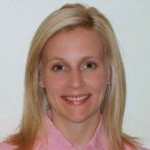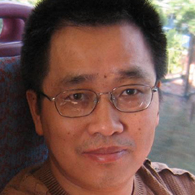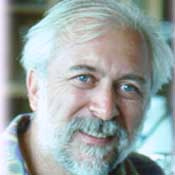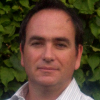 |
|
|
| SEARCH | NASA/JPL - 2012 | ||||||||||||||||||||||||||||||||||||||||||||||||||||
|
Featured Scientists
Yi Chao Dr. Chao received his Ph.D. from Princeton University (Atmospheric and Oceanic Science Program, NOAA Geophysical Fluid Dynamics Laboratory). His research interests include satellite oceanography with a particular focus on coastal oceans; ocean modeling, data assimilation and forecasting; interdisciplinary science of coupling ocean circulation with ecosystem and air-sea interactions; and climate variability and change.Remote Sensing Solutions
Michelle Gierach Dr. Gierach received her Ph.D. in Marine Science from the University of South Carolina. Her research interests include application of satellite observations, in-situ data, and model simulations to study biophysical interactions, ecosystem dynamics, air-sea interactions, ocean dynamics, atmospheric processes, and the oceans relation to climate variability.NASA JPL
Josh Willis Dr. Willis received his Ph.D. in Oceanography from Scripps Institution of Oceanography, University of California, San Diego, La Jolla, California. His research interests include estimating ocean warming and sea level rise on regional to global scales; the role of the ocean in the Earth's climate system under global climate change; understanding large scale changes in the ocean and its circulation on interannual to decadal time scales; and development of analysis techniques for global oceanographic data sets.NASA JPL
Zhijin (Gene) Li Dr. Li, a research technologist at JPL, studies conceptual development and mathematical formulation of atmospheric and oceanic data assimilation algorithms; implementation of advanced data assimilation algorithms for real-time forecasting systems; parallel computing of atmospheric and oceanic modeling and adjoint systems; development and application of adjoint models associated with sophisticated atmospheric and oceanic models and their physics; and predictability.NASA JPL
Doug Capone Dr. Capone received his Ph.D. in Oceanography from the Rosenstiel School of Marine and Atmospheric Sciences of the University of Miami (Fl). His research interests include learning about bacteria's ability to promote the absorption of greenhouse gas; the importance of nitrogen fixation in the biogeochemistry of the oceans and the major groups of organisms involved in this process; experimental manipulation of nutrient dynamics in coral reefs systems; the examination of South Pole snows for active populations of bacteria; and analyses of microbial processes in mangrove ecosystems.University of Southern California
Jorge Vazquez Dr. Vazquez received his Ph.D. in Geological Sciences from the University of Southern California. His research interests include validation of satellite-derived sea surface temperature data sets; development and analysis of climate data records; statistical modeling of remote sensing data; and improvement in quality of sea surface temperature data records.NASA JPL
Vardis Tsontos Dr. Tsontos received his Ph.D. from Imperial College, University of London (Renewable Resources Assessment Group) in Fisheries Ecology/Population Dynamics. He is based at the NASA/JPL PO.DAAC where he serves as the data engineer supporting the Aquarius project and SST observations. His research interests include geospatial informatics and the application of remote sensing data to marine resource management problems.NASA JPL Schedule
Day 1 of the workshop focused on group work with scientists to examine connections between the water cycle, ocean circulation,
climate and sea surface salinity. Using an online Concept Map Builder developed by COSEE-Ocean Sytems the scientist/educator teams
created concept maps to enable effective communication of these connections. On Day 2, educators worked with NASA experts to understand how to get
and use online oceanographic data, conducted "hands on" activities that support workshop themes, and toured the JPL facility. This
model is based on a series of Centers for Ocean Sciences Education Excellence (COSEE) workshops that team researchers and educators
to better communicate scientific content.Learn more about NASA Aquarius at http://aquarius.nasa.gov. |
|
|||||||||||||||||











